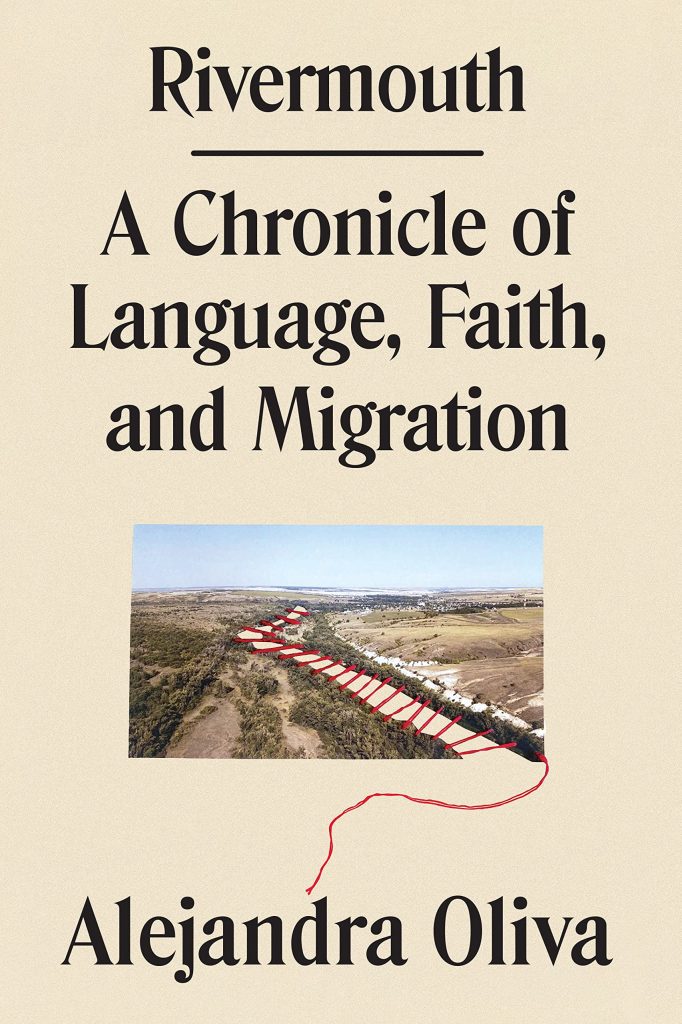Join Alejandra Oliva to talk about “Rivermouth.”
AUTHOR EVENT DETAILS
10/17/2024 at 7:00 pm
CALL & RESPONSE BOOKS
1390 E HYDE PARK BLVD
CHICAGO, IL 60615-3043
About the Author:
Alejandra Oliva is an essayist, translator, immigrant justice advocate, and embroiderer. She is a recipient of the 2022 Creative Nonfiction Whiting Grant. Her writing has been included in Best American Travel Writing 2020, was nominated for a Pushcart prize, and was honored with an Aspen Summer Words Emerging Writers Fellowship. She was the Frankie Fellow at the Yale Whitney Hummanities Center in 2022. Read more at olivalejandra.com

About the Book:
“With uncut rage and breathtaking prose, Oliva edifies, infuriates, and moves readers all at once. This is required reading.”
—Publisher’s Weekly (starred review)
A chronicle of translation, storytelling, and borders as understood through the United States’ “immigration crisis”
In this powerful and deeply felt memoir of translation, storytelling, and borders, Alejandra Oliva, a Mexican-American translator and immigrant justice activist, offers a powerful chronical of her experience interpreting at the US-Mexico border.
Having worked with asylum seekers since 2016, she knows all too well the gravity of taking someone’s trauma and delivering it to the warped demands of the U.S. immigration system. As Oliva’s stunning prose recounts the stories of the people she’s met through her work, she also traces her family’s long and fluid relationship to the border—each generation born on opposite sides of the Rio Grande.
In Rivermouth, Oliva focuses on the physical spaces that make up different phases of immigration, looking at how language and opportunity move through each of them: from the river as the waterway that separates the U.S. and Mexico, to the table as the place over which Oliva prepares asylum seekers for their Credible Fear Interviews, and finally, to the wall as the behemoth imposition that runs along America’s southernmost border.
With lush prose and perceptive insight, Oliva encourages readers to approach the painful questions that this crisis poses with equal parts critique and compassion. By which metrics are we measuring who “deserves” American citizenship? What is the point of humanitarian systems that distribute aid conditionally? What do we owe to our most disenfranchised?
As investigative and analytical as she is meditative and introspective, sharp as she is lyrical, and incisive as she is compassionate, seasoned interpreter Alejandra Oliva argues for a better world while guiding us through the suffering that makes the fight necessary and the joy that makes it worth fighting for.














